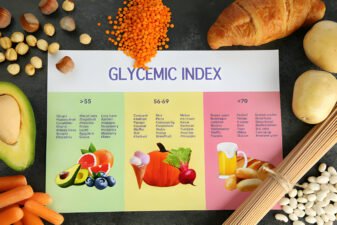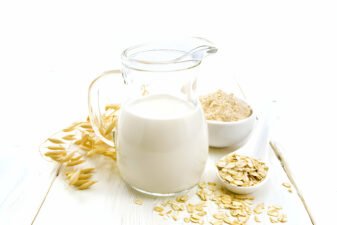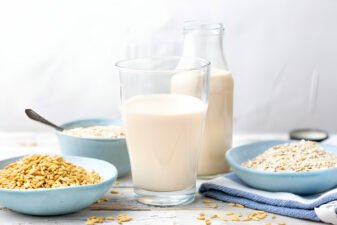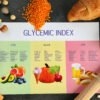People who suffer from lactose intolerance are unable to digest (break down in the gut) significant amounts of lactose, which is the principal sugar in milk and milk products. This digestive inability is caused by a lack of the digestive enzyme lactase.
Symptoms of Lactase Deficiency
Normally, in order to break down lactose, we rely on a digestive enzyme called lactase which is produced by the cells that line the small intestine. If a lactase-deficient individual eats a food containing lactose, the sugar passes through into the intestine where it provides a bonanza for waiting bacteria. The bacteria consume the sugar, emitting gas and toxic products (eg. lactic acid) as they grow and multiply. These toxins then cause unpleasant symptoms such as pain, bloating, gas, diarrhea and abdominal cramps.
Treatment
There is no “special treatment” for lactose intolerance. The only way to control symptoms is by diet modification. This means that if you suffer from lactose intolerance you need to follow a low-lactose or lactose-free diet. This should be planned in consultation with your dietitian or nutritionist.
Coping With Lactase Deficiency
The main strategy for people who are lactase-deficient and who have trouble digesting lactose is to adapt their eating habits according to which dairy products they can (and can’t) consume without discomfort. This largely involves a process of trial and error. Many sufferers are able to enjoy milk, ice cream, and other dairy products provided they eat them in small amounts or combine them with other foods. Other sufferers find it helpful to take supplements like lactase liquid or tablets to help digest the lactose.
Health Management
Groups with special calcium needs, such as women at risk from osteoporosis or growing children, who are unable to digest milk products, can satisfy most of their nutritional requirements by eating greens, fish, and other calcium-rich foods that do not contain lactose.
Special Causes of Lactase Deficiency
Lactase enzyme activity is reduced in people with certain intestinal conditions such as Crohn’s disease, ulcerative colitis, and celiac disease. In addition, patients taking certain drugs and alcoholic patients may also be lactase deficient. Lastly,patients who have undergone gastric bypass surgery may be lactose intolerant and may therefore need to reduce lactose in the diet.
Lactose Intolerance: Summary
For those people who are deficient in lactase and thus unable to tolerate milk foods, a lactose-free diet, combined if necessary with calcium supplements, is an effective way to reduce symptoms and protect health. Between 30 and 50 million Americans are lactose intolerant, but despite its prevalence, lactose intolerance does not pose a serious threat to good health. For example, even though it sometimes causes quite uncomfortable symptoms, it does not cause damage to the intestine.










